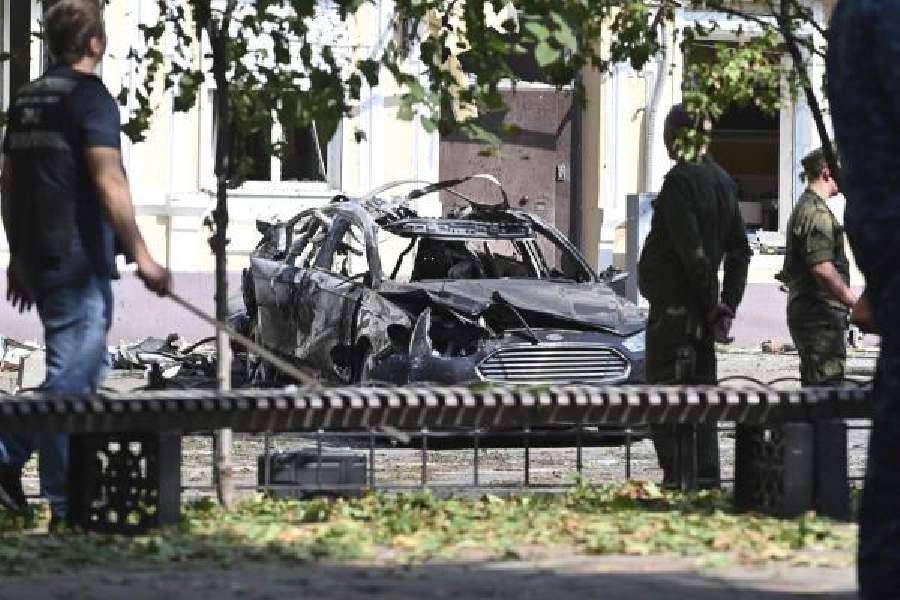Explosions rocked the area around one of Russia’s largest military hubs before dawn Thursday, and officials later said that air defences had shot down two drones.
At least one blast was heard in the city of Rostov-on-Don, which is home to Russia’s southern military headquarters and is a command centre for its forces in Ukraine. In June, the city drew world attention when mercenary fighters from the Wagner military company faced off with regular Russian soldiers there in a short-lived uprising.
On Thursday, Russian news outlets posted a series of videos showing an explosion in the centre of Rostov-on-Don. The Russian defence ministry said that drone attacks in other regions were thwarted.
Vasily Golubev, the regional governor of Rostov, said debris that fell after air defences downed the drones had damaged cars and buildings, injuring one person. One drone fell in the city centre, he said in a post on the Telegram messaging app, listing an address that is across the street from the military headquarters. Another was shot down outside the city in the western part of the region, he said.
President Vladimir Putin of Russia has made several official visits to Rostov-on-Don since the start of the war. His most recent visit was on August 19, when he received reports from Valery Gerasimov, the chief of the general staff of Russia’s armed forces, and various commanders and senior officers, according to the Kremlin.
As a matter of official policy, the Ukrainian government does not comment on whether it has had a hand in the growing number of strikes across the border in Russia. But officials in Ukraine have become increasingly vocal in defending such strikes as warranted. President Volodymyr Zelensky has described the strikes as a “fair and just” way to bring the war home to Russia.
Last week, a wave of exploding drones targeted six Russian regions, including an airfield near the border with Estonia, a Nato member, where military cargo planes were damaged.
The forays are a sign, analysts say, that even as Ukraine has begged western allies to supply long-range weapons, its own arms makers have built a homegrown arsenal that is capable of hitting Russian territory at a great distance by land, air and sea.











